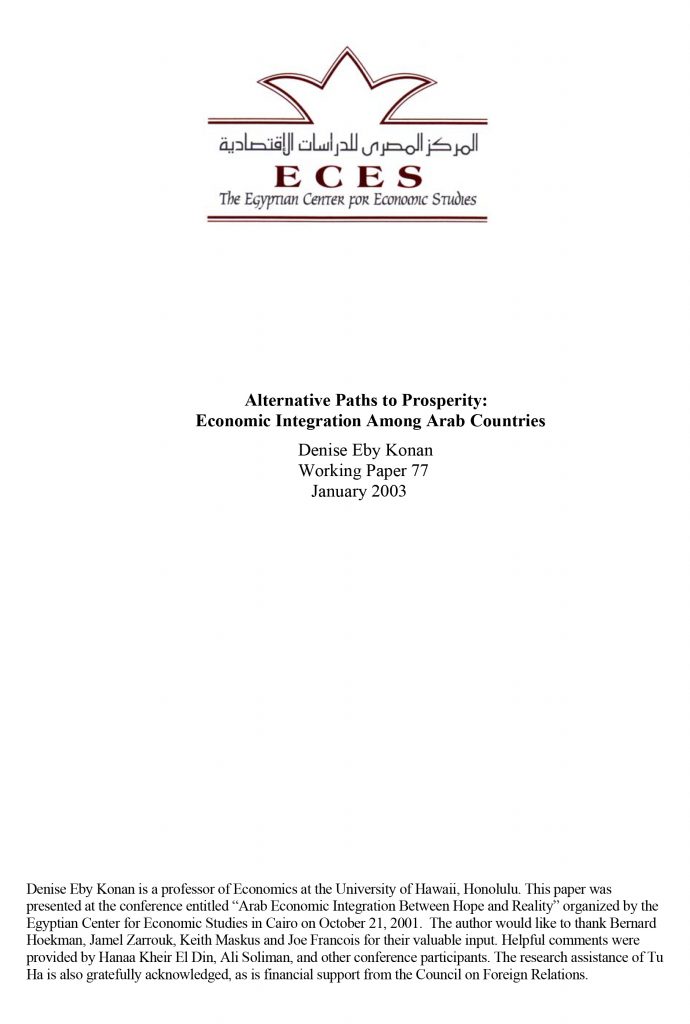Abstract:
This paper assesses alternative strategies for achieving economic prosperity in Arab countries. The analysis considers not only shallow integration scenarios but also the scope for deeper integration through the coordination of regulatory procedures and the liberalization of barriers to trade in services.
Using computable general equilibrium (CGE) models of Tunisia and Egypt to determine potential costs and benefits from economic integration, the results suggest that Tunisia would benefit most from an extensive reform in which goods tariffs and non-tariff barriers are eliminated and foreign trade and investment in services sectors are liberalized. For reform to have a major impact on Egypt’s economy, a reduction of structural impediments to trade is required. The reform of the service sectors, particularly domestically and through foreign investment, appears to offer the most significant prospects for gains in Egypt.

